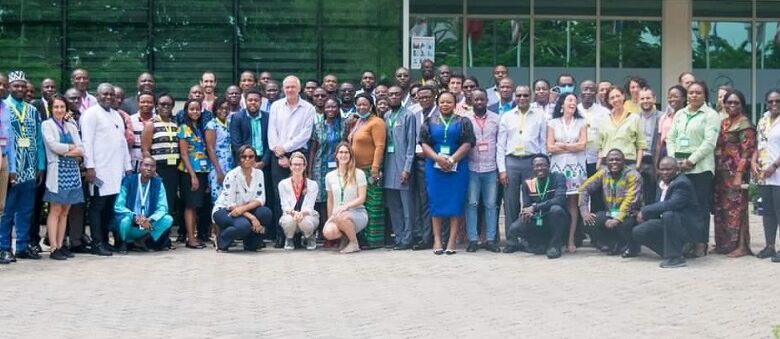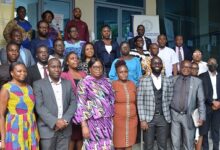
A Senior Research Scientist at the Forestry Research Institute of Ghana (FORIG) of the Centre for Scientific and Industrial Research (CSIR), Dr Caleb Ofori-Boateng, has cautioned Ghanaians against the consumption of bush meat, describing it as toxic.
This, he said was due to the chemicals used in hunting for the animals, adding that “we don’t need bush meat anymore in Ghana, people are on different protein sources like chicken and fish and others.”
Dr Ofori-Boateng said this in Accra on Tuesday at a four-day Critical Ecosystem Partnership Fund (CEPF) final assessment workshop aimed at showcasing the impacts of CEPF’s investment in the Guinean Forests of West Africa biodiversity hotspot from 2016 to 2022.
The workshop also seeks to deal with the impact of its $10 million investment across the biodiversity hotspot covering parts of Guinea, Sierra Leone, Liberia, Cote d’Ivoire, Ghana, Togo, Benin, Nigeria, Cameroun, Sao Tome and Principe and Equatorial Guinea.
Dr Ofori-Boateng said according to a survey conducted by Conservation International (CI) some local restaurant operators confessed of not tasting meals prepared with bush meat when cooking because they were scared of the dangerous chemicals used in harvesting the animals.
He said “they confess that sometimes when they prepare these meals or soups, they don’t check if there is enough salt or the meat is really cooked because it is so toxic.”
Dr Ofori-Boateng was of the view that hunting of bush meat would persist because “rich people want to eat bush meat”.
He also mentioned that there were chemicals being used in Africa, specifically Alfrazine which were able to turn male amphibians into females stating that such chemicals get into the underground water systems which were used in households.
He said such activities pose danger to the environment adding that they were unregulated thereby posing a lot of health danger to humankind.
According to Dr Ofori-Boateng the threats associated with the use of dangerous chemicals were huge and enormous and it required a stronger resolve and determination from all stakeholders in the environmental conservation.
In an attempt to address the challenges, he said the Ministry of Environment, Science, Technology and Innovation (MESTI) was leading the way to have its first policy framework.
He said there were also other policies and laws that were very supportive in providing the enabling environment for civil society organisations (CSOs) and governments to find a lasting solutions to these challenges of biodiversity.
Presenting an overview of the project, the Executive Director of CEPF, Olivier Langrand, said it started 21 years ago and was jointly financed by six global donors including Conservation International, European Union, Global Environment Fund, Government of Japan and the World Bank, to the support of CSOs to undertake conservation projects in 10 biodiversity hotspots in developing and transition countries.
He said more than 1,000 globally threatened species had been supported, 51.6 million hectares of key biodiversity areas had improved management, 16.2 million hectares of protected areas established and 10.5 million hectares of production of landscape had been strengthened management with over $277 million committed to smaller CSOs.
BY JEMIMA ESINAM KUATSINU






